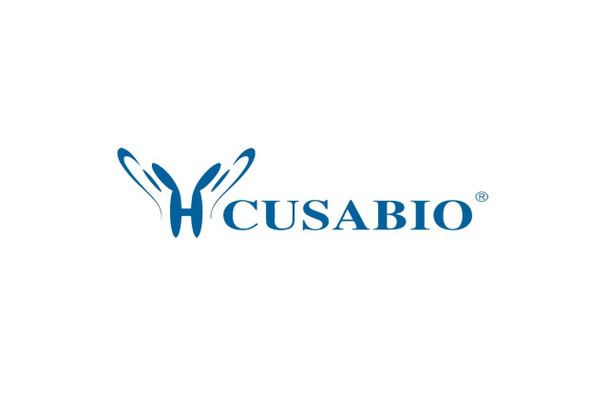Cusabio Human Recombinants
Recombinant Human Draxin (DRAXIN) | CSB-EP822750HU
- SKU:
- CSB-EP822750HU
- Availability:
- 13 - 23 Working Days
Description
Recombinant Human Draxin (DRAXIN) | CSB-EP822750HU | Cusabio
Alternative Name(s): Dorsal inhibitory axon guidance protein Dorsal repulsive axon guidance protein Neucrin
Gene Names: DRAXIN
Research Areas: Neuroscience
Organism: Homo sapiens (Human)
AA Sequence: GALAPGTPARNLPENHIDLPGPALWTPQASHHRRRGPGKKEWGPGLPSQAQDGAVVTATRQASRLPEAEGLLPEQSPAGLLQDKDLLLGLALPYPEKENRPPGWERTRKRSREHKRRRDRLRLHQGRALVRGPSSLMKKAELSEAQVLDAAMEESSTSLAPTMFFLTTFEAAPATEESLILPVTSLRPQQAQPRSDGEVMPTLDMALFDWTDYEDLKPDGWPSAKKKEKHRGKLSSDGNETSPAEGEPCDHHQDCLPGTCCDLREHLCTPHNRGLNNKCFDDCMCVEGLRCYAKFHRNRRVTRRKGRCVEPETANGDQGSFINV
Source: E.coli
Tag Info: N-terminal 6xHis-SUMO-tagged
Expression Region: 26-349aa
Sequence Info: Full Length of Mature Protein
MW: 52 kDa
Purity: Greater than 90% as determined by SDS-PAGE.
Relevance: Chemorepulsive axon guidance protein required for the development of spinal cord and forebrain commissures. Acts as a chemorepulsive guidance protein for commissural axons during development. Able to inhibit or repel neurite outgrowth from dorsal spinal cord. Inhibits the stabilization of cytosolic beta-catenin (CTNNB1) via its interaction with LRP6, thereby acting as an antagonist of Wnt signaling pathway.
Reference: "Neucrin is a novel neural-specific secreted antagonist to canonical Wnt signaling."Miyake A., Takahashi Y., Miwa H., Shimada A., Konishi M., Itoh N.Biochem. Biophys. Res. Commun. 390:1051-1055(2009)
Storage: The shelf life is related to many factors, storage state, buffer ingredients, storage temperature and the stability of the protein itself. Generally, the shelf life of liquid form is 6 months at -20?/-80?. The shelf life of lyophilized form is 12 months at -20?/-80?.
Notes: Repeated freezing and thawing is not recommended. Store working aliquots at 4? for up to one week.
Function: Chemorepulsive axon guidance protein required for the development of spinal cord and forebrain commissures. Acts as a chemorepulsive guidance protein for commissural axons during development. Able to inhibit or repel neurite outgrowth from dorsal spinal cord. Inhibits the stabilization of cytosolic beta-catenin (CTNNB1) via its interaction with LRP6, thereby acting as an antagonist of Wnt signaling pathway.
Involvement in disease:
Subcellular Location: Secreted
Protein Families: Draxin family
Tissue Specificity:
Paythway:
Form: Liquid or Lyophilized powder
Buffer: If the delivery form is liquid, the default storage buffer is Tris/PBS-based buffer, 5%-50% glycerol. If the delivery form is lyophilized powder, the buffer before lyophilization is Tris/PBS-based buffer, 6% Trehalose, pH 8.0.
Reconstitution: We recommend that this vial be briefly centrifuged prior to opening to bring the contents to the bottom. Please reconstitute protein in deionized sterile water to a concentration of 0.1-1.0 mg/mL.We recommend to add 5-50% of glycerol (final concentration) and aliquot for long-term storage at -20?/-80?. Our default final concentration of glycerol is 50%. Customers could use it as reference.
Uniprot ID: Q8NBI3
HGNC Database Link: HGNC
UniGene Database Link: UniGene
KEGG Database Link: KEGG
STRING Database Link: STRING
OMIM Database Link: OMIM









